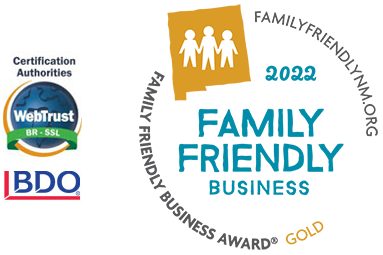
Telehealth Immersion Training Series
Project ECHO (Extension for Community Healthcare Outcomes) teleECHO clinics combine mentoring and patient case presentations to create a virtual learning network through hub-and-spoke knowledge-sharing networks. TeleECHO clinics are conducted using basic, widely available videoconferencing technology, allowing clinicians to join from anywhere. During teleECHO clinics, Board Certified Behavior Analysts from multiple sites present patient cases, discuss new developments relating to their patients, and determine treatment plans.

The ECHO model is an innovative system that expands professionals’ knowledge and increases confidence in treating individuals with ASD through the following components:
- Utilizing technology to leverage scarce behavioral health resources
- Providing frequent didactic training on best practice ABA treatment
- Facilitating professional case presentations representing complex cases of ASD
- Focusing on outcome measurement and utilizing outcome data to contribute to research in the field of Applied Behavior Analysis
BCI Published Telehealth Research
The Role of Compassion and Ethics in Decision-Making Regarding Access to Applied Behavior Analysis Services During the COVID-19 Crisis: A Response to Cox, Plavnick & Brodhead.
LeBlanc, L., Pearson, J. L., Pollard, J., & Unumb, L. S. (2020, May 13). The Role of Compassion and Ethics in Decision-Making Regarding Access to Applied Behavior Analysis Services During the COVID-19 Crisis: A Response to Cox, Plavnick & Brodhead.
Telehealth Delivery of Function-Based Behavioral Treatment for Problem Behaviors Exhibited by Boys with Fragile X Syndrome.
Monlux, Katerina & Pollard, Joy & Bujanda, Arlette & Hall, Scott. (2019). Telehealth Delivery of Function-Based Behavioral Treatment for Problem Behaviors Exhibited by Boys with Fragile X Syndrome. Journal of Autism and Developmental Disorders. 49. 10.1007/s10803-019-03963-9.
Ethical considerations in the design and implementation of a telehealth service delivery model.
Pollard, J. S., Karimi, K. A., & Ficcaglia, M. B. (2017). Ethical considerations in the design and implementation of a telehealth service delivery model. Behavior Analysis: Research and Practice, 17(4), 298-311.

Case Presentations
ECHO creates an interactive learning network and experience through which participants are engaged in dialogue and have the opportunity to troubleshoot complex cases together.
- Case presentations begin with a brief case history and synopsis of the presenting problem/reason for consultation (e.g. assessing the appropriateness of a telehealth model of care, mitigating barriers to providing effective telehealth treatment, etc.).
- Following the case synopsis, the facilitator requests engagement from participants by encouraging them to ask clarifying questions to further understand the variables affecting treatment.
- The hub facilitators are specifically trained to provide supplemental information on the rationale behind each question and recommendations to enhance participant competency in evaluating complex cases.

Didactic Presentations
The ECHO model focuses on providing learning opportunities through case-based learning; however, each Clinic will begin with a brief didactic presentation and is followed by at least 1 case presentation. In order to create a customized experience for our participants, didactic presentations will be individualized to the needs of each clinic. Didactic presentations may cover information about the following topics:
- Assessing which Telehealth model is appropriate for a client and their family
- Curriculum modifications to improve the effectiveness of Telehealth Direct Service Delivery
- Coach technicians/caregivers via Telehealth
- Troubleshooting technology
- Preparing RBTs for direct service delivery
- Developing long-term contingency plans during COVID-19 and beyond
- Evaluating the effectiveness of telehealth service delivery model selected

Recommendations and Resources
Each ECHO Clinic ends with a list of recommendations, associated research articles, and resources, which are emailed to all participants. As a result, participants gain exposure to a number of clinically unique and complex cases that they might not otherwise encounter through years of individual practice. Further, participants gain knowledge on how to effectively analyze and treat complex cases of autism via telehealth and are active participants throughout the learning process.
Project ECHO is not intended to replace BCBA Certification courses or traditional continuing education, rather, it is an alternative to the traditional continuing education model by providing intensive and ongoing mentorship and support.
Benefits To Participants
- Receive intensive Telehealth training & contingency planning
- Opportunity to troubleshoot active client cases
- Complimentary access to webinar trainings on related topics, including separate training content for RBTs
- Complimentary access to Telehealth resources
- 6 CEUs (Continuing Education Credits)
Feedback From Recent TeleECHO Participants
“I left this past ECHO clinic with a plethora of resources provided by attendees for the case I presented on. I also have points to focus on and a more clear direction on treatment planning. I’m so thankful for everyone’s recommendations. I also have a better understanding of prerequisites for telehealth services.”
“I learned that I have a huge support system out there. I also learned the benefit of doing the case reviews. We get busy at work and only did reviews a handful of times. The cases reviews are so critical!”
“I learned about the decision-making tool for determining what kind of services to deliver based upon what’s available.”
“There were several new online technologies that I want to check out, particularly Boom!”
“The Higbee article was particularly helpful and I think the technology will be helpful in working with my moderate to severe clients.”
“I thought that the assessment to determine if the client is appropriate for telehealth was really helpful! I’m also excited to review the materials that were just sent.”
“I can now effectively prep my clients for telehealth (teach pre-requisites and role play)!”

